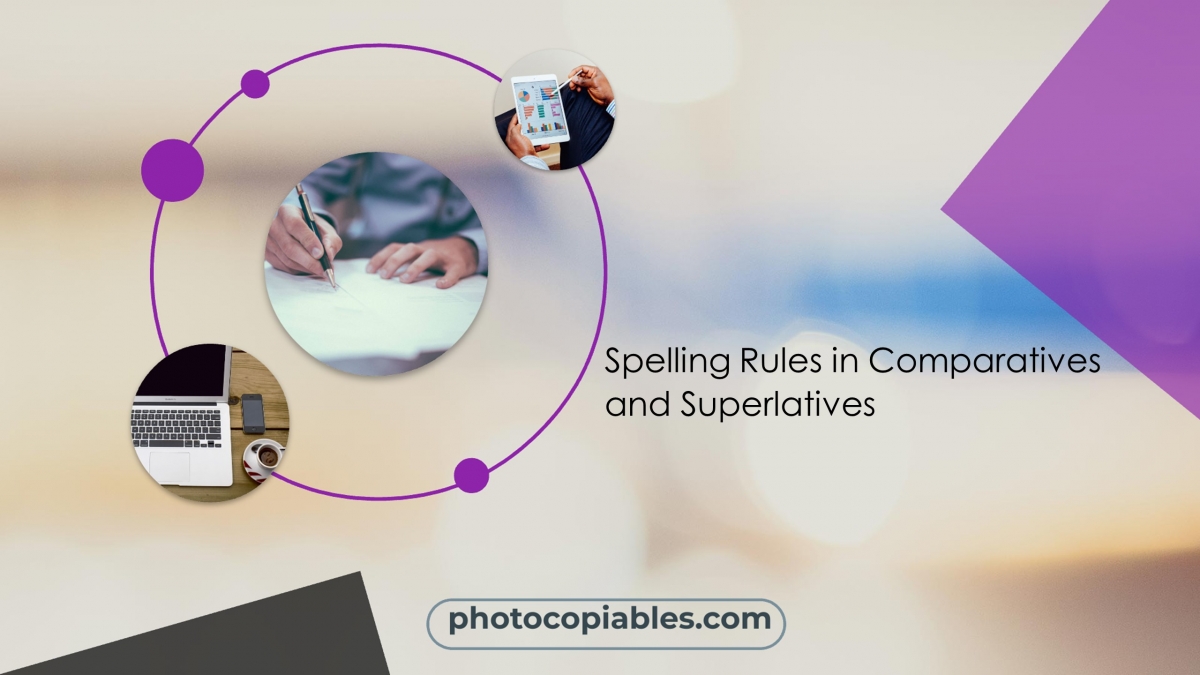The spelling rules for comparatives and superlatives follow the same patterns. Comparative adjectives generally take -er as an ending, and superlative adjectives generally take -est as an ending.
Here are some examples of regular comparisons:
clean-cleaner-cleanest
cheap-cheaper-cheapest
high-higher-highest
However, there are a few different spelling patterns according to the ending of the adjectives.
| Spelling 1 | Spelling 2 | Spelling 3 |
After one-syllable adjectives ending in letter ‘-e’ : Add -r/-st. For example large-larger-largest nice-nicer-nicest | After one-syllable adjectives ending in one vowel and a single consonant: Double the last letter and add -er/-est. For example big- bigger-biggest hot-hotter-hottest | After two-syllable adjectives ending in the letter ‘-y’: Drop the letter ‘-y’ and add -ier/-iest. For example lovely-lovelier-loveliest cozy-cozier-coziest |
What about the irregular adjectives?
There a few irregular comparative forms in English. The comparative and superlative forms of good, bad are irregular.
Good becomes better and best.
Bad becomes worse and worst
The adjective ‘far’ is irregular and has two forms.
Far becomes farther and farthest (meaning distance).
Far becomes further and furthest (for all other meanings)
For example: "My elder brother is an engineer." |
Exercise

 When you talk about the age of people in a family ‘
When you talk about the age of people in a family ‘




